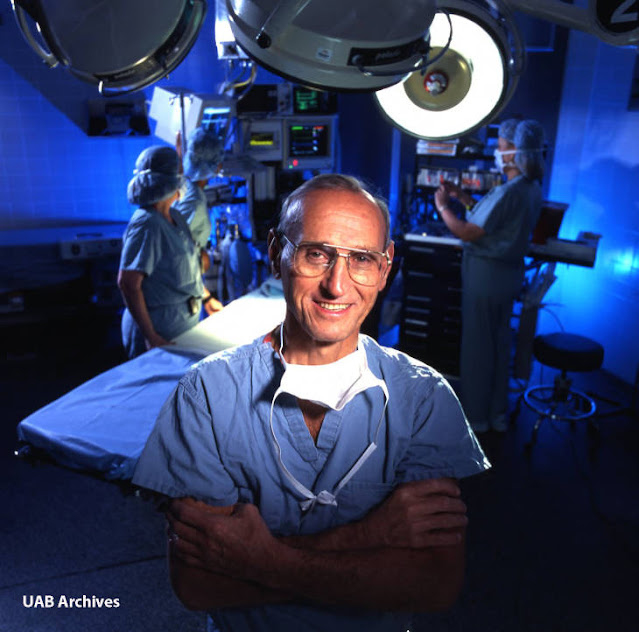Early this past February I wrote a post about Charles McCallum, D.M.D., M.D., who had died on January 16. Dr. McCallum was a very important figure in the history of the UAB and its School of Medicine, eventually serving as President of the university. He also served two terms as Mayor of Vestavia in his "retirement".
I'd like to take note here of the passing of another giant in the history of UAB and medicine in Alabama, Arnold G. Diethelm, M.D., who died on January 28. He was born in Baltimore into a multi-generational line of doctors, graduated from Washington State University in 1953, and Cornell University Medical College in 1958. A fellowship in transplantation at Harvard followed, then study of transplant immunology in England under Sir Peter Medawar, a Nobel Laureate. In 1967 he was recruited by Dr. John Kirklin to come to Birmingham and begin a transplant program at the University of Alabama School of Medicine.
Dr. Diethelm performed the first organ transplant in the state of Alabama on May 8, 1968; the operation was successful. By 2018 more than 14,000 organs had been transplanted by the program, which expanded to include hearts, livers, lungs, pancreas and multi-organ procedures. Later in life Dr. Diethelm received kidney and liver transplants himself.
Named a full Professor of Surgery in 1973, he chaired the medical school's Department of Surgery from 1982 until 1999. A football player at Washington State, Dr. Diethelm became a Crimson Tide fan after moving to the state. He even invited former coach Gene Stallings to give a grand rounds lecture at the Department of Surgery in 1998.
You can read more about Dr. Diethelm in his obituary in the Birmingham News and an official remembrance from UAB and one from the Department of Surgery. He was inducted into the Alabama Healthcare Hall of Fame in 2004.
This article reprinted Dr. Diethelm's Presidential address at the Southern Surgical Association annual meeting in 1989. The source is Annals of Surgery May 1990. The article is one of 195 he published as indexed in the National Library of Medicine's PubMed database.


















